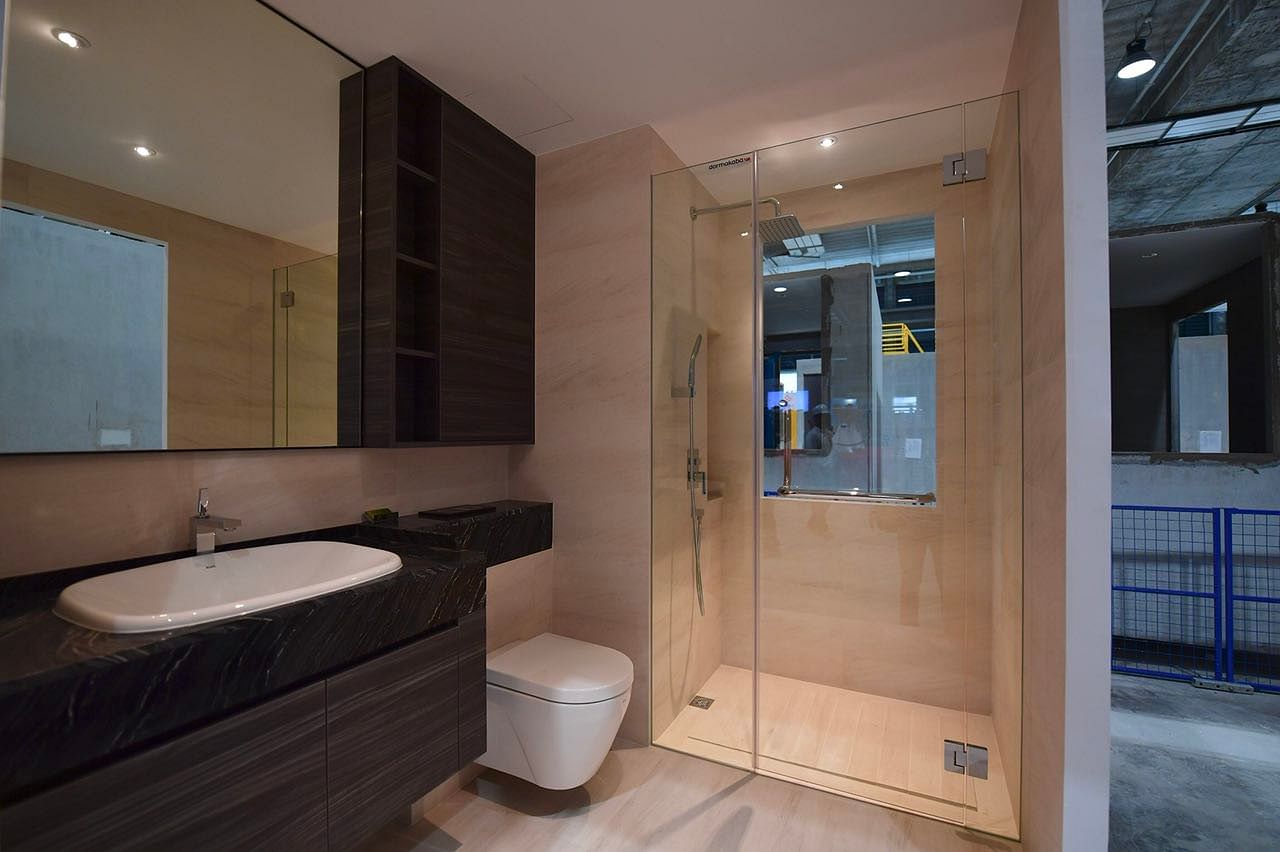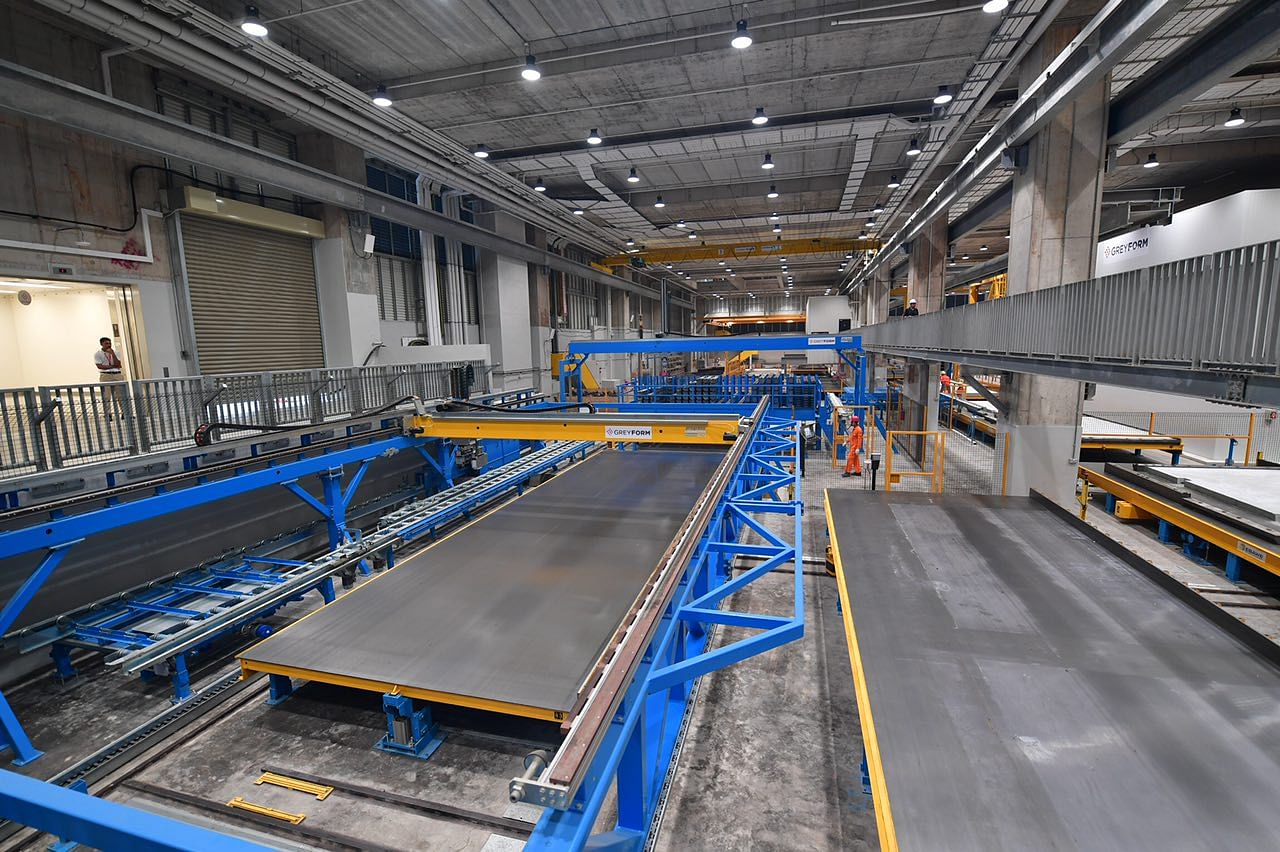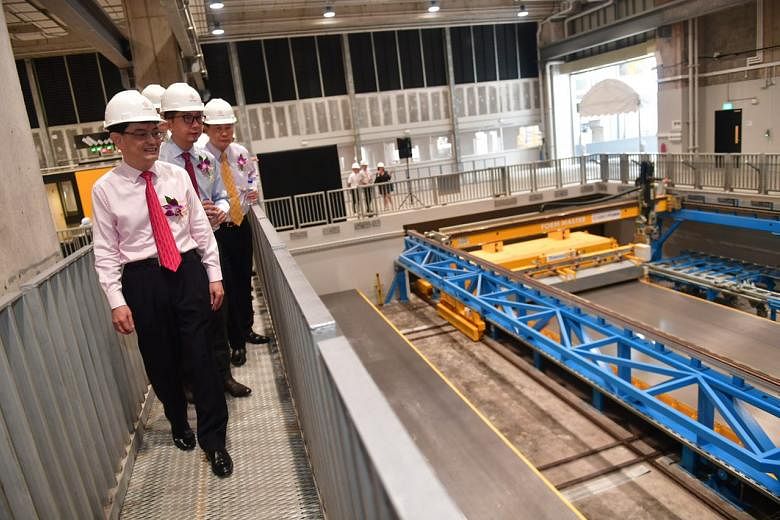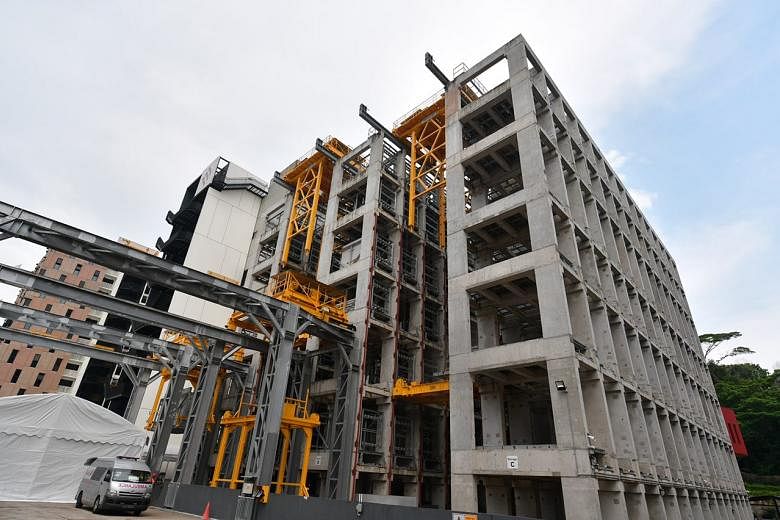SINGAPORE - From Tuesday (Oct 3), the Building and Construction Authority (BCA) will give advance notice about upcoming projects requiring higher levels of prefabrication.
This would give construction firms the "runway to plan ahead how best to deploy resources", said Finance Minister Heng Swee Keat at the opening of at an integrated construction and prefabrication hub on Tuesday.
The move will be an improvement on the current forecast of construction demand given at the start of the year.
For example, firms were told that there is an anticipated $28 billion to $35 billion worth of projects this year. But the new forecast will give the types of technology required and value of public projects requiring the Design for Manufacturing and Assembly (DfMA) standards. This means using technology such as prefabricated bathroom units.
Mr Heng, who chairs the Committee on the Future Economy (CFE) to support productivity-led growth, said about 60 of such DfMA projects are in the pipeline from now until the end of 2018.
This is in contrast to fewer than 10 such tenders four years ago, he added.

"The growing number of firms investing in DfMA technologies will have these opportunities to look forward to. Other companies can also know where the opportunities lie and make more informed investment decisions," he said.
The construction sector here is one of the worst-performing here in terms of productivity, though it improved from a rate of 0.3 per cent in 2010 to about 2 per cent now.
Integrated construction and prefabrication hubs, like Straits Construction Group's Greyform Building which opened on Tuesday, are "critical for improving productivity", since they optimise land use, require less time and fewer workers to construct buildings, and improve the quality of pre-fabricated components, Mr Heng said.
These multi-storey facilities, which are heavily automated, also create new and higher-skilled jobs that may be meaningful enough to attract Singaporeans, he added.
The Government plans for 10 such hubs by 2020. The Greyform Building, a sprawling 20,000 sq m development in Kaki Bukit that cost $150 million, is the second, while the tender process for the fifth is ongoing.

Mr Norman Seah, a project manager, said the hub has only 60 workers - compared to three or four times more in a traditional open yard - and can produce the equivalent of 48 four-room Housing Board flats in 10 days, or half the time.
Straits Construction Group chief executive Wong Chee Herng noted that different prefabrication technologies have different pros and cons, but they all require less manpower.
"The industry should explore different technologies and choose a method that best fits their needs," he urged.



